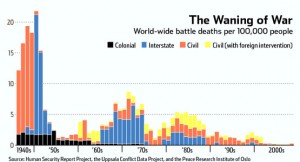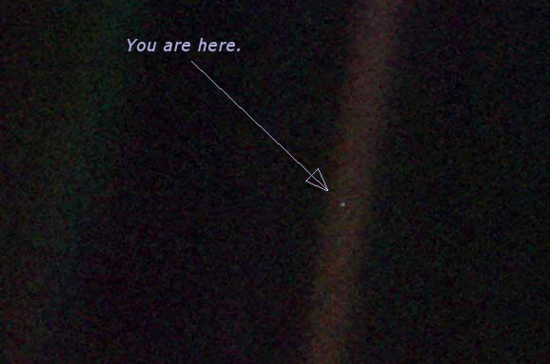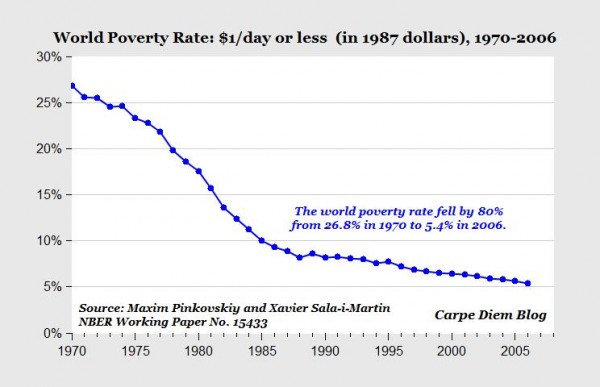Look again at that dot. That’s here. That’s home. That’s us. On it everyone you love, everyone you know, everyone you ever heard of, every human being who ever was, lived out their lives. The aggregate of our joy and suffering, thousands of confident religions, ideologies, and economic doctrines, every hunter and forager, every hero and coward, every creator and destroyer of civilization, every king and peasant, every young couple in love, every mother and father, hopeful child, inventor and explorer, every teacher of morals, every corrupt politician, every “superstar,” every “supreme leader,” every saint and sinner in the history of our species lived there-on a mote of dust suspended in a sunbeam.
The Earth is a very small stage in a vast cosmic arena. Think of the endless cruelties visited by the inhabitants of one corner of this pixel on the scarcely distinguishable inhabitants of some other corner, how frequent their misunderstandings, how eager they are to kill one another, how fervent their hatreds. Think of the rivers of blood spilled by all those generals and emperors so that, in glory and triumph, they could become the momentary masters of a fraction of a dot.
-Carl Sagan, Pale Blue Dot
Introduction: I’m not sure of the impetus to start writing such a piece on globalization and global citizenship, but here we are. The post was pushing 2000 words and I wasn’t close to finishing, so I’ve split it up into several parts for ease of reading (and writing). This is intended to be an introduction of sorts, laying out a foundation of ideas to be fully fleshed out in a later posts.
Astronauts, almost to a man, return to Earth with the greatest of perspectives. They looked down upon our lonely blue-green orb, floating in a vast dark, empty sea, and without man-made divisions on a map. They see humanity for what it really is: a species too caught up in its small-minded, myopic fights to see the greater picture–to see what we could become if we worked together and stopped dividing ourselves into made up races, religions, and nationalities.
Carl Sagan made the same observation without ever physically venturing to the heavens. When the Voyager spacecraft crossed the orbital plane of Neptune, leaving the business end of our solar system, Sagan requested that they turn their instruments back toward Earth for one last parting shot of our home planet. Voyager captured nothing more than a fraction of a pixel—the Pale Blue Dot. That’s all. And this tiny image, captured by a spacecraft exiting the solar system at unimaginable speed, helped to highlight how our seemingly impossible to gulf differences are nothing, even compared to the relatively coziness of our local stellar neighborhood.
We have transformed our world, for better or worse–without much forethought or direction. It is time to change that, and the first step is to begin officially tearing down the boundaries in which we have confined ourselves. Walls–physical or legal–serve only to provide the illusion of safety. Walls that are designed to keep out a perceived threat, also trap its citizens and take away their liberty.
The most iconic 20th century iteration of a wall cut right through the heart of the German capital of Berlin. The ironically named German Democratic Party declared it an equally ironic name, “The Anti-Fascist Barrier,” a protective wall for all the good little socialists behind it. As much as its physical presence deterred would-be border-crossers (along with ready-to-shoot, armed-to-the-teeth guards), the legal framework of the GDR and other Soviet Satellites ensured that their citizens’ freedom of moment and exposure to new ideas would be limited to other like-minded citizens.
We talk about living in a “Post 9/11 World” (using the American short hand for the dates), but in reality we’re living in the “Post 11/9 World,” November 9, 1989, the day the Berlin Wall became kaput. Since the day when that physical wall came down, countless other economic, legal, and social barriers have come down with it. I’m not arguing that we’re all free now–sadly, we are far from it–but as a species we are certainly freer. Moreover, increased interconnectedness and global commerce have lifted more people from the depths of poverty than at any other time in human existence. Again, there’s a long way to go, but despite constant media bombardment of all the world’s ills, there has never been a better time to be alive, and things keep getting better.
It’s no secret that I’ve come to see myself as a Global Citizen. Legally, other countries may not agree with my self-proclaimed status, but I’d like to see that change.
Globalization has its benefits and problems, but the best thing about it is increased opportunity, mobility, and ultimately, freedom. The barriers are often still high for those seeking to leave their nation of birth and start over in a new land, and for those coming from impoverished areas of the world, such barriers are often impossibly high.
I want to live in a world where we can choose to be Global Citizens, officially. How great would it be to have a passport with a simple stylized Mercator globe on it, and “Global Passport” scrawled in gold letters across its face? And moreover, to have that passport accepted as valid in all but the most injudicious, unreasoning, backward regimes?
And no, I’m not saying that we should give up our nationalities just yet. But I see a future where I would say “I’m from America” in the same way I would say “I’m from Tennessee.” Yes, I’m from Knoxville, Tennessee, but my passport says, “United States of America” not “Tennessee,” and certainly not, “Knoxville.” (Side note, what would be on the cover of a Knoxville Passport? The only thing for certain is that it would be unmistakably bright orange).
Although we are still a long way from any global legal recognition of citizenship, I think the world is moving in that direction. Our biggest advantage as a species is the ability to organize, and to become greater than the sum of our individual parts. This ability has also led to some of our biggest moral shortcomings, but it is getting better, and quantitatively so.
The world over, we have seen our interconnectedness rise precipitously, if not exponentially. Through English, the de facto global language, linguistic and cultural barriers are being reduced. Through free trade agreements, ease of global travel, and the Internet, legal and physical barriers are crashing down. Regardless of what it says in our passports (even for those who don’t have them), we’re all becoming global citizens, if only by buying and selling goods in the global marketplace.

If you expand this chart out, 20th century war deaths are low by historical standards, even when accounting for both World Wars. Source: Think Progress
The last thing I have to say (for now) is about global safety. Again, the media readily reports on the violence in the Middle East and Africa. That violence is largely fueled by forces who wish to see the world return to the 7th century, not push on through the 21st. They wish return to tribalism and ironclad local control. To erect boundaries between men and women, and between true believers, false believers, and non-believers. Some see ISIS and Boko Haram as existential threats to our safety, but they are not. They are the death throes of an ideology which is on its way out. These groups, and others like them, are on the wrong side of history (by a few hundred years, I must add). How do I know? Because we have already been dealing with a real existential threat for the last seven decades: the threat of nuclear annihilation.
It was certainly a close-run thing for a few tense years, but eventually we managed to come together and start greatly reducing our nuclear stockpiles. We did this despite our vast ideological differences with the Soviet Union. Many nations voluntarily abandoned their nuclear programs, and I hope the current negotiations with Iran are successful in both bringing them into the interconnected global marketplace and ending the threat of another nuclear rogue state.
When faced with a potential global crisis, we worked (and continue to work) together to address the threat. A nuclear bomb and its after effects knows no borders on a map. We’re not out of the woods yet, but we’ve come a long way. There will be other existential threats to humanity—global climate change chief among them—and the only way we can continue thriving as a species is by working together to actively create the Pale Blue Dot we want instead of passively destroying it.
The next post “Going Global” will address how we continually choose to organize ourselves in larger and larger organizations, and how we are ultimately moving toward a global society, officially and unofficially.




2 comments for “A World Without Borders: A Pale Blue Dot”